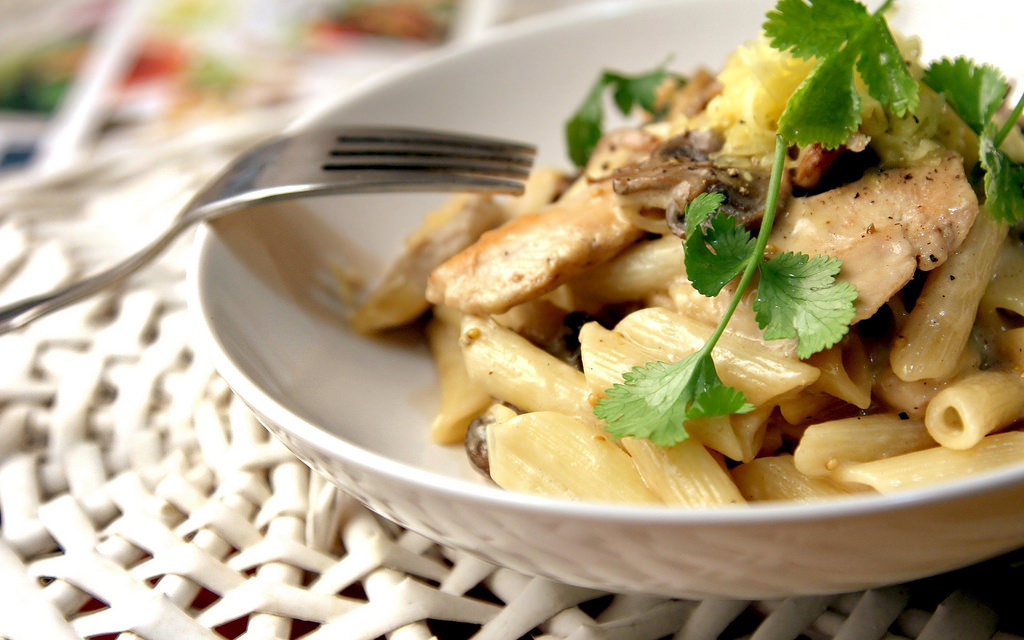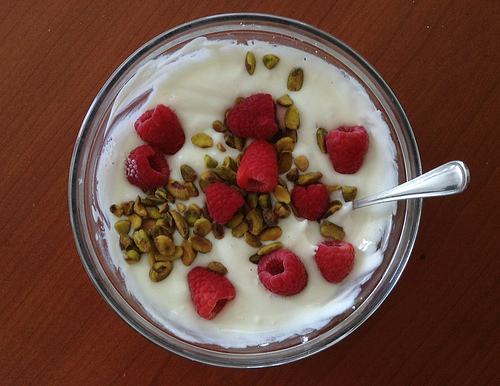6 Tips To Become A More Mindful Eater And Lose More Weight

When it comes to adapting healthy eating habits, most of us focus on what we’re eating, along with how much. These may seem like the only components that matter when it comes to diet, but how you consume your meals can also play a large role in your relationship with food.
Mindful eating, which has its roots in Zen Buddhism, consists of creating an experience of eating that puts an increased focus on your body’s physical cues and the act in which you consume your meals. This increased consciousness is not supposed to make you obsesses over how you eat, but instead make you aware of how you are eating and why, which can lead to healthier eating habits.
Adapting mindful eating habits can help cultivate a healthy relationship with food, as you become more aware of what you’re putting into your body and what is making you do so.
According to the Journal of Marketing Research, people who become aware of how they feel when eating certain foods can help lead to healthier food choices and even weight loss.
If you’re looking to fuel healthier eating habits this year, consider these six ways to become a more mindful eater.
1. Pay Attention To Your Hunger
Most of us have been in a situation where we continued to eat something delicious, despite not being hungry anymore. We can still enjoy food without eating so much of it, and an important part of this is knowing when we are hungry rather than anxious or bored. Use a hunger scale to gauge where your stomach is at, and stop eating midway through your meal to reconnect with your body’s satiation levels.

2. Turn Off The TV
Sitting in front of the TV while eating is a mindless habit that causes you to eat more, both in the moment and later, Appetite told Medical Daily. Try to remove any distractions such as the TV or your phone, and focus on enjoying the process of eating.

3. Eat Slower
It might seem like the most basic tip, but eating your food slowly can help you enjoy your food and prevent you from overeating. Methods to help you eat slowly include putting your fork down between bites, chewing your food completely, and breathing deeply between spoonfuls. Research shows that eating more slowly can help you consume less calories and lose weight.


4. Savor Your Food
Instead of scarfing your food down, allow yourself to enjoy the taste of each and every bite. Use all your different senses to help you enjoy the moment, whether it’s your sight to recognize the beauty of your plate or your nose to take in your meal’s pleasant aroma.


5. Breathe
Breathing is essential in mindfulness meditation, and it is the same for mindful eating. Take a few breaths before eating to check in on how your body is feeling, and take breaths while you are eating to help slow down and really savor the moment. Research from Penn State University and Yale University found that breathing while you are eating can even enhance the taste of food.


6. Plan Your Meals
Plan what you want to eat ahead of time instead of just reaching for the nearest bag of chips. Pay attention to whether your food is healthy or filled with processed ingredients. Knowing what you are going to eat ahead of time can also help you keep the right food on hand, so you won’t even have the option of junk food.


Photo by Michael Stern
[h/t: Huffington Post]





